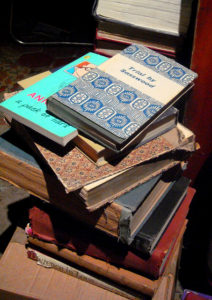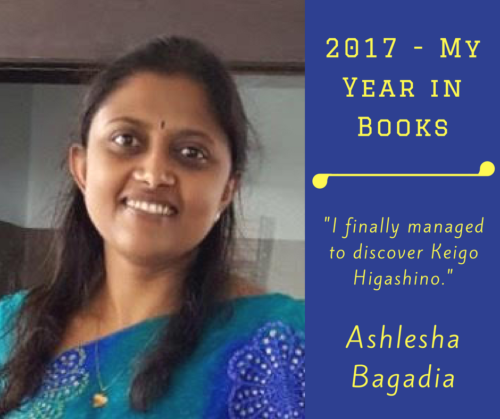by Vani Viswanathan
Divya sat by the balcony on a bamboo wicker chair, staring absent-mindedly at a ray of sunlight streaming in through the window. Specks of dust played along merrily in the light from the late afternoon Chennai sun. Her face wore a sullen look, her lips were turned into a frown. Her life as she knew it was going to change any minute now – maybe it had, already; she didn’t know. Her mother was in the hospital, probably crying out in pain as she pushed out a baby. A baby brother or sister, Divya didn’t know… and didn’t care.
As a 14-year-old, Divya had found the whole pregnancy an affair of extreme embarrassment; she had never expected her parents to do something like this – her father, the Crompton Greaves accountant, her mother, the government officer. Her parents, the traditional, money-scrounging middle class types who didn’t let her watch movies with friends or have birthday parties or eat cakes that had egg. Didn’t they know better? Couldn’t they have done something to make sure her mother didn’t get pregnant? Didn’t they have common sense – how could they have two children, fourteen years apart?! It was embarrassing enough to know her parents still did it, but it was worse when they seemed to not realise how humiliating it was for her – Divya’s mother had come to her school several times, walking around with her big belly, even as other parents gaped in unabashed shock. Her parents hadn’t even bothered asking her how she felt, assuming she’d be delighted to welcome a baby into the family.
Just that morning, a whole two weeks before her due date, her mother had been taken to the hospital, and her grandmother had called on the telephone to inform Divya that her mother might have the baby anytime now. Divya was alone in the house, with a neighbour entrusted with giving her dinner in case they got late.
Attempting to distract herself, Divya walked up to her grandparents’ living room and looked for cassette tapes to play. Paati-thatha’s tape recorder was a wheezing old set, not like the wonderful stereo she had at home. Paati-thatha’s cassettes were no better, she realised as she browsed; they were full of Carnatic music recordings. No film music, not even film music from the 60s or something.
She wandered into paati-thatha’s room. Growing up, she’d always liked her paati’s bureau; it had unique, quirky and wonderful things from different times. An ornate, red lacquer box with intricate gold vines snaking through it, with felt inside, where paati kept small pieces of jewellery. A blue bag – handmade – with wire, a silver clasp and a short, knotty silver chain. ‘My mother made it,’ paati would say proudly, and Divya would imagine an elegant woman in a short puffed-sleeved blouse and saree, long hair plaited with a string of flowers circling the top, carrying the bag as she went to a wedding. Then there would be dozens of small pouches, with paati’s jewellery: designs Divya found ancient, unrelatable (even though she had an eye on that ring with a single sapphire stone). The bureau always smelled of naphthalene to save paati’s sarees from insects.
Divya tried the handle of the bureau; clever paati had kept it locked. Dejectedly, she walked towards thatha’s cupboard, which had never held much allure to her. The stately wooden cupboard had two doors and four drawers at the bottom. Thatha, a teacher of physics, was the kind who stocked the shelf with papers and serious science books that were boring. Nevertheless, Divya opened the shelf and started moving the books around. There were at least a dozen books on physics, of all kinds: physics for the beginner, modern physics (ironically, Divya noted, a book from the 60s), physics and music (!), theoretical physics, and so on. She then moved to the lower-most shelf, and to her delight, found less nerdy books.
‘Tom Sawyer!’ she shrieked with delight, purely at finding something that she knew about. She pulled it out. ‘The Adventures of Tom Sawyer’ had a pretty, mischievous-looking boy biting into an apple, while a couple of boys painted a fence in the background. Divya opened the book, its pages yellowing, curling in the corners. It had that old book smell that some of her own books had come to have. As she put the book down after taking a whiff, she noticed writing on the front page.
‘Kochi, 1963. For Savithri, for her 11th birthday.’ Divya recognised her thatha’s pearl-like handwriting. Faded, black fountain pen ink.
Divya started digging around for more books. She found a book on fairy tales, clearly not Indian (and remembered that her grandfather’s brother lived in London long ago) – the usual Rapunzel, Snow White, Cinderella and Sleeping Beauty. Her mother had vehemently written her name on the first page in big, block letters: ‘SAVITHRI’. On the last page, there was her mother’s declaration: ‘Snow White is the most beautiful girl, but Cinderella is my favouritest.’
Divya chuckled. How had she never seen these before? She pulled out book after book, each with some date and place scribbled by her grandfather, or a strong opinion from her mother. Divya found ‘Friday is being abused by Crusoe!’, ‘Where is my Mr. Darcy?’, and several notes longing for boarding school life in a book of Malory Towers. In Jane Eyre, Divya saw, to her bafflement, the last page full of ‘Sri Rama Jayam’ in her mother’s scrawny handwriting. In a ‘Famous Five’ book, she had drawn scones, jugs of juice, eggs and so on.
She then found a Nancy Drew with a ‘page 6’ scribbled obscurely in the last page of the book; turning to page 23, she found a scene describing Nancy and her boyfriend Ned in a swimming pool, passionately kissing in the water. Divya was amused and slightly disgusted at the same time; she tried to imagine her mother, the income tax inspector at Aayakar Bhawan, as a young woman reading and getting excited by steamy scenes in teenage novels.
A huge stack of dusty books on the floor beside her, Divya reached out deeper inside the shelf. Out came several Mills & Boon (‘M&B!’ Divya exclaimed) and quite a few James Hadley Chase novels – her grandfather had cleverly kept them hidden, even as she wondered why he had bothered to save these books from decades ago. Most of the Chase novels had skimpily-clad women on the cover, while the Mills & Boon were, of course, full of women in the throes of passion. These books didn’t have much of her mom’s writing, but she found several pages with lines underlined, and much to her horror, most of these were of kissing or sex.
Divya put the books away and sat down amidst the pile of yellowing, crinkled books. Who was this person who had, in a couple of decades, become the bespectacled, saree-clad grouch that her mother was? Why did her mother, who mentioned her adoration of the scones and picnics in Famous Five, not understand Divya’s needs to enjoy similar pleasures? How did the woman who had tediously underlined passages on sex steadfastly refuse Divya permission to watch Titanic?
And then she thought about it another way. What was it that life had thrown at her mother that this English-life-loving, erotic literature-craving excited young woman had become sour, ill-humoured? Suddenly, another thought hit Divya: did her mother want to have another baby, after all these years?
Lost in thought, Divya put the books back, trying to keep them as they were when she had taken them out. In a few minutes, as she was getting her chilled Boost milk from the fridge, the phone rang. ‘You have a little brother!’ paati said excitedly. ‘Oh,’ replied Divya. ‘What happened, kanna?’ paati asked. Divya stayed silent for a few seconds. ‘How’s amma?’
Picture from https://www.flickr.com/photos/austinevan/






